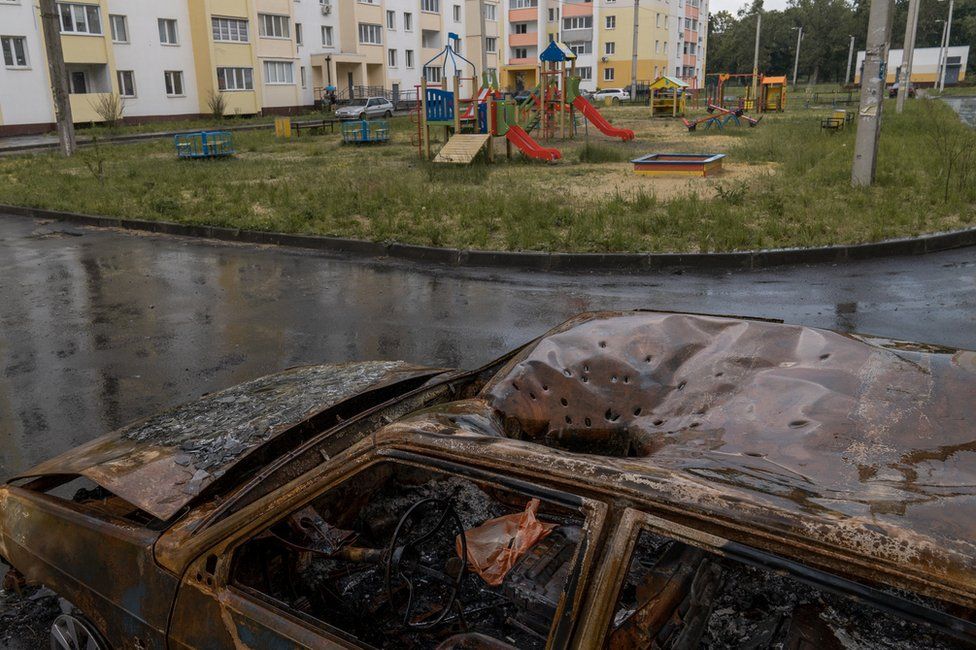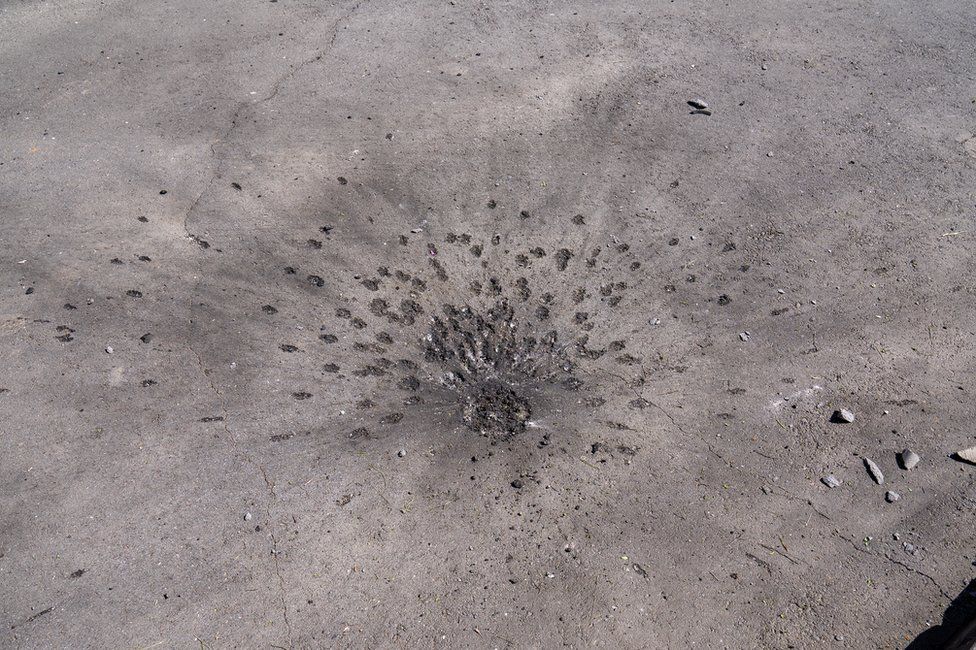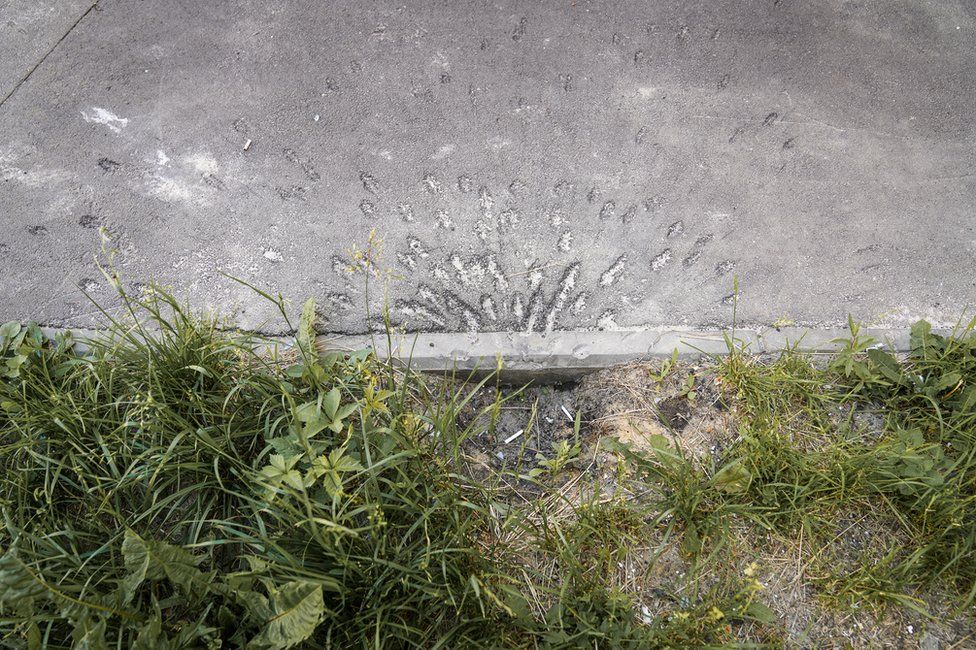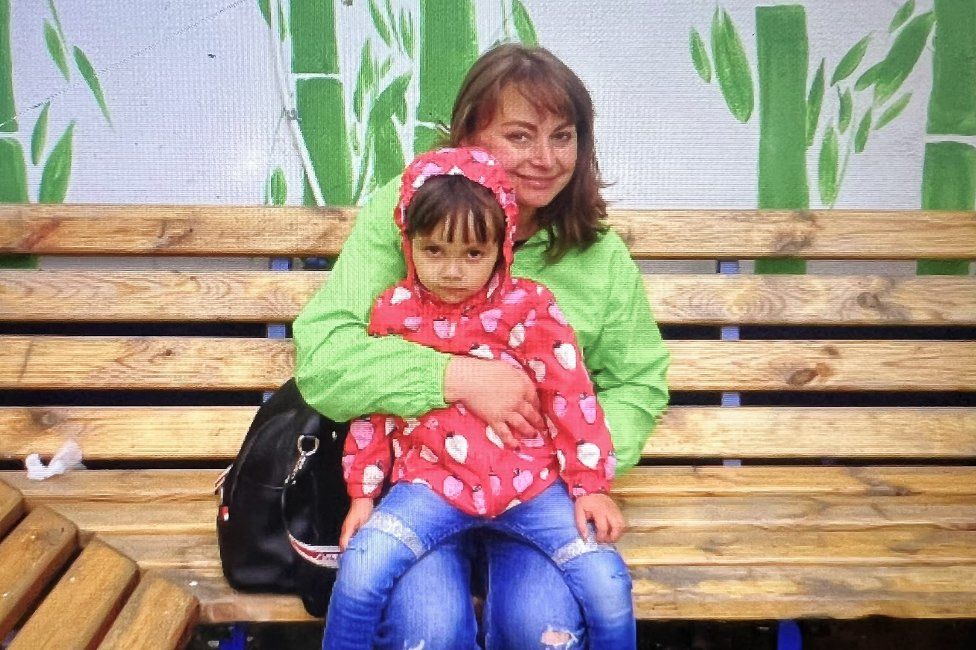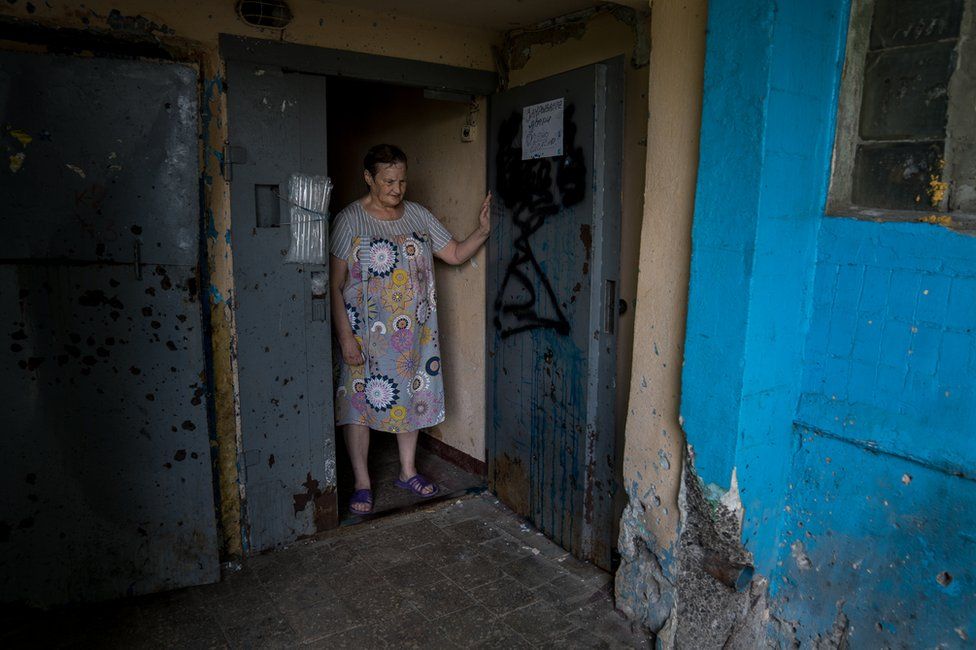7:28
WATCH: How Russian TV has reported 100 days of war
BBC Monitoring
Video by Tse Yin Lee and Suniti Singh
Video content
Video caption: Ukraine war: How Russian TV has reported the 100 days of conflictUkraine war: How Russian TV has reported the 100 days of conflict
TV viewers in Russia see only the Kremlin's version of events in Ukraine.
From initially being told nothing of the plans to invade, to repeated claims about the need to "denazify" Ukraine, Russians are being fed a different narrative to the rest of the world.
Take a look at how Moscow's coverage has changed in the 100 days since the war began.
"If you're watching the TV in Russia, the war in Ukraine looks like a very different event."
Video of Dmitry Peskov saying Russia has never attacked anyone.
"Since it started, TV channels in Russia have devoted much of their airtime to reporting and commentary on it.
High profile presenters actively support the "special military operation". (video of several Russian TV news presenters)
When the Russian army had to withdraw from a number of fronts to refocus on the east, reporting also refocused on those areas, with little or no mention of any retreat or change of scope."
The lack of a quick victory has been explained in a number of ways."
Video RT Editor in Chief saying "we pity everyone there. That's the first thing. The second thing is that we realise that lots of people there are on our side, who are hostages."
Reporter, "Another explanation is that Russia's battle has become an existential one against the whole of the West, not just Ukraine."
(video of news presenters talking as if the entire West, or London based government, are planning to fight to defeat Russia.)
Reporter: "Russia draws on memories of fighting in World War 2 to justify its war."
(video of news presenter saying, "I view Mariupol as a little Stalingrad.")
Reporter: "Even Ukraine's victory at Eurovision, was cast in the same light."
(video of presenter saying, "Europe voted for fascism.")
Reporter: "Presenters make hyperbolic claims about the enemy..."
(video of presenter, "satanists, ghouls, the darkness,")
"and Russia's nuclear might."
(video of presenter, "another option is to plunge Britain into the depths of the sea using Russia's unmanned, underwater vehicle Poseiden. Such a barage alone also carries an extreme dose of radiation.")
Reporter, "Realistic assessments of the situation are rare, and tend to only come from former military figures."
(Video of older gentleman saying, "But first I should say you shouldn't take information sedatives. The situation for us will clearly get worse.")
Reporter, "State TV wields enormous influence in Russia. Its rhetoric is very nationalist in tone, and reporting on Ukraine often verges on hate speech. But this has been the case for a number of years. And with new laws limiting what people can say about the war, TV channels are likely to continue swaying how Russian's think."
(backdrop to reporter shows research from the Levada-Centre, April 2022
Main sources of news:
TV 70%
Social networks 30%
Internet media 30%
Friends & family 18%)
WATCH: How Russian TV has reported 100 days of war
BBC Monitoring
Video by Tse Yin Lee and Suniti Singh
Video content
Video caption: Ukraine war: How Russian TV has reported the 100 days of conflictUkraine war: How Russian TV has reported the 100 days of conflict
TV viewers in Russia see only the Kremlin's version of events in Ukraine.
From initially being told nothing of the plans to invade, to repeated claims about the need to "denazify" Ukraine, Russians are being fed a different narrative to the rest of the world.
Take a look at how Moscow's coverage has changed in the 100 days since the war began.
"If you're watching the TV in Russia, the war in Ukraine looks like a very different event."
Video of Dmitry Peskov saying Russia has never attacked anyone.
"Since it started, TV channels in Russia have devoted much of their airtime to reporting and commentary on it.
High profile presenters actively support the "special military operation". (video of several Russian TV news presenters)
When the Russian army had to withdraw from a number of fronts to refocus on the east, reporting also refocused on those areas, with little or no mention of any retreat or change of scope."
The lack of a quick victory has been explained in a number of ways."
Video RT Editor in Chief saying "we pity everyone there. That's the first thing. The second thing is that we realise that lots of people there are on our side, who are hostages."
Reporter, "Another explanation is that Russia's battle has become an existential one against the whole of the West, not just Ukraine."
(video of news presenters talking as if the entire West, or London based government, are planning to fight to defeat Russia.)
Reporter: "Russia draws on memories of fighting in World War 2 to justify its war."
(video of news presenter saying, "I view Mariupol as a little Stalingrad.")
Reporter: "Even Ukraine's victory at Eurovision, was cast in the same light."
(video of presenter saying, "Europe voted for fascism.")
Reporter: "Presenters make hyperbolic claims about the enemy..."
(video of presenter, "satanists, ghouls, the darkness,")
"and Russia's nuclear might."
(video of presenter, "another option is to plunge Britain into the depths of the sea using Russia's unmanned, underwater vehicle Poseiden. Such a barage alone also carries an extreme dose of radiation.")
Reporter, "Realistic assessments of the situation are rare, and tend to only come from former military figures."
(Video of older gentleman saying, "But first I should say you shouldn't take information sedatives. The situation for us will clearly get worse.")
Reporter, "State TV wields enormous influence in Russia. Its rhetoric is very nationalist in tone, and reporting on Ukraine often verges on hate speech. But this has been the case for a number of years. And with new laws limiting what people can say about the war, TV channels are likely to continue swaying how Russian's think."
(backdrop to reporter shows research from the Levada-Centre, April 2022
Main sources of news:
TV 70%
Social networks 30%
Internet media 30%
Friends & family 18%)
